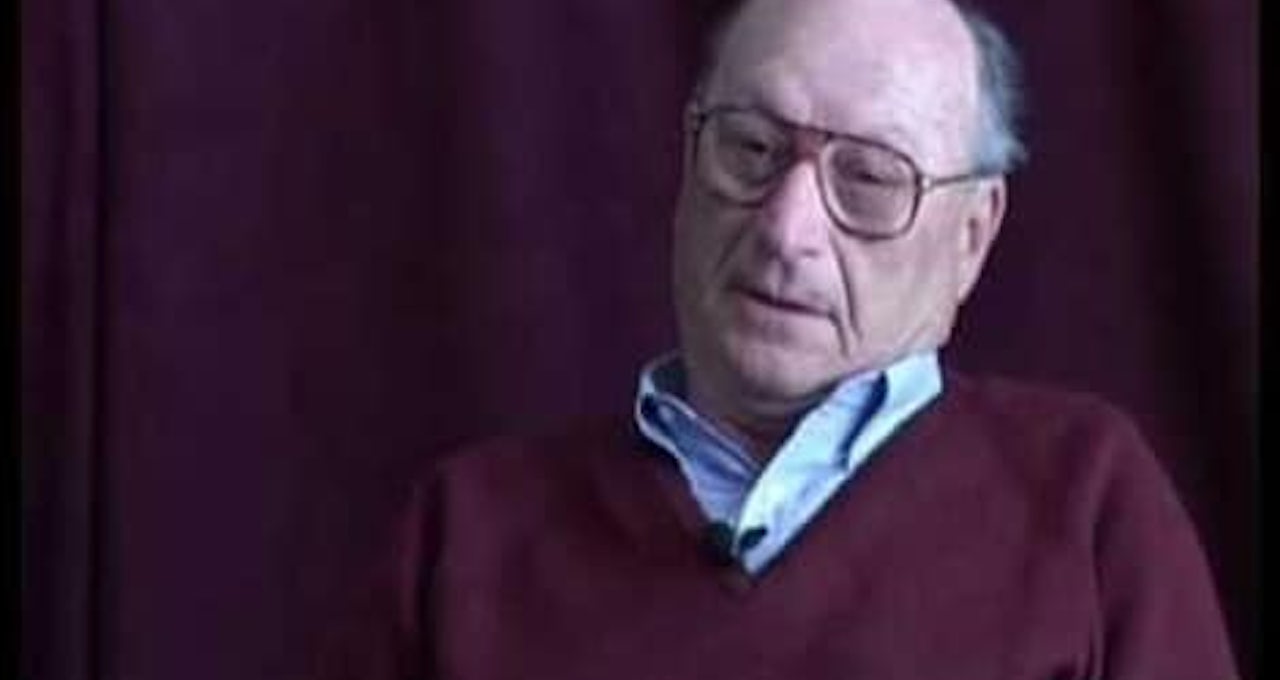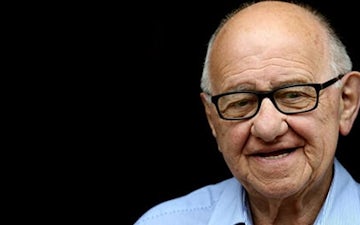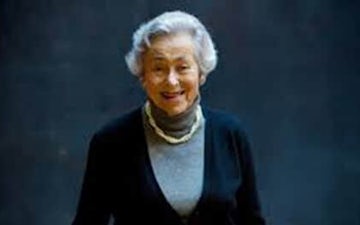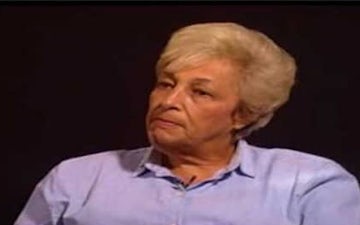Jack Fogel was born in Turek, Poland in 1924. After the German occupation of Turek in 1939, Jack’s family was forced into a ghetto. Jack, along with his parents, three brothers, and one sister, all shared a room with another family.
At the age of fifteen, while walking outside, German soldiers apprehended Jack and loaded him onto a truck with twenty other Jews. At first, he thought he was being taken by the Germans to do manual labor outside of the ghetto walls, but when he arrived at a labor camp in Poznan, he sensed that something was amiss. He never saw his family again.
Jack worked in labor camps in Poznan until early 1943, when, one morning, instead of taking the laborers to work, the Nazis placed the Jewish prisoners on a train destined for Auschwitz.
“People who tried to run away they were shot or brought back and hung in front of us. The hangings were always on Sunday the day when we were not at work and we all had to watch it. It was horrible.”
Upon arrival, he was tattooed with the number 140964 and sent to work in the Fürstengruber coal mine, where conditions were appalling. He would remain there until the Red Army began to approach from the east and the prisoners were evacuated.
In 1945, as the war was nearing its end, the prisoners were lined up and forced to march west in the snow. Whoever fell and could no longer walk was shot. When they reached Germany, they were carted onto four ships already loaded with other prisoners in the Baltic Sea, when, suddenly, bombs began to fall.
Thinking they were full of escaping Nazis, the allies had attacked the ships. Eventually the engines stopped, and one brave prisoner discovered that their captors were gone. Suddenly, a British tank unit arrived to liberate the human cargo.
Source: JHC Melbourne






